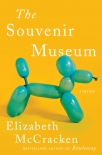An American Tragedy, Theodore Dreiser [best business books of all time txt] 📗

- Author: Theodore Dreiser
Book online «An American Tragedy, Theodore Dreiser [best business books of all time txt] 📗». Author Theodore Dreiser
Besides who was this woman—as well as her son? An exhorter—a secret preacher—one, who in defiance of all the tenets and processes of organized and historic, as well as hieratic, religious powers and forms (theological seminaries, organized churches and their affiliations and product—all carefully and advisedly and legitimately because historically and dogmatically interpreting the word of God) choosing to walk forth and without ordination after any fashion conduct an unauthorized and hence nondescript mission. Besides if she had remained at home, as a good mother should, and devoted herself to her son, as well as to her other children—their care and education—would this—have happened?
And not only that—but according to Clyde’s own testimony in this trial, had he not been guilty of adultery with this girl—whether he had slain her or not? A sin almost equal to murder in many minds. Had he not confessed it? And was an appeal for a convicted adulterer—if not murderer (who could tell as to that?) to be made in a church? No—no Christian church was the place to debate, and for a charge, the merits of this case, however much each Christian of each and every church might sympathize with Mrs. Griffiths personally—or resent any legal injustice that might have been done her son. No, no. It was not morally advisable. It might even tend to implant in the minds of the young some of the details of the crime.
Besides, because of what the newspapers had said of her coming east to aid her son and the picture that she herself presented in her homely garb, it was assumed by most ministers that she was one of those erratic persons, not a constituent of any definite sect, or schooled theology, who tended by her very appearance to cast contempt on true and pure religion.
And in consequence, each in turn—not hardening his heart exactly—but thinking twice—and deciding no—there must be some better way—less troublesome to Christians—a public hall, perhaps, to which Christians, if properly appealed to through the press, might well repair. And so Mrs. Griffiths, in all but one instance, rejected in that fashion and told to go elsewhere—while in regard to the Catholics—instinctively—because of prejudice—as well as a certain dull wisdom not inconsistent with the facts—she failed even to so much as think of them. The mercies of Christ as interpreted by the holder of the sacred keys of St. Peter, as she knew, were not for those who failed to acknowledge the authority of the Vicar of Christ.
And therefore after many days spent in futile knockings here and there she was at last compelled—and in no little depression, to appeal to a Jew who controlled the principal moving picture theater of Utica—a sinful theater. And from him, this she secured free for a morning address on the merits of her son’s case—“A mother’s appeal for her son,” it was entitled—which netted her, at twenty-five cents per person—the amazing sum of two hundred dollars. At first this sum, small as it was, so heartened her that she was now convinced that soon—whatever the attitude of the orthodox Christians—she would earn enough for Clyde’s appeal. It might take time—but she would.
Nevertheless, as she soon discovered, there were other factors to be considered—carfare, her own personal expenses in Utica and elsewhere, to say nothing of certain very necessary sums to be sent to Denver to her husband, who had little or nothing to go on at present, and who, because of this very great tragedy in the family, had been made ill—so ill indeed that the letters from Frank and Julia were becoming very disturbing. It was possible that he might not get well at all. Some help was necessary there.
And in consequence, in addition to paying her own expenses here, Mrs. Griffiths was literally compelled to deduct other reducing sums from this, her present and only source of income. It was terrible—considering Clyde’s predicament—but nevertheless must she not sustain herself in every way in order to win to victory? She could not reasonably abandon her husband in order to aid Clyde alone.
Yet in the face of this—as time went on, the audiences growing smaller and smaller until at last they constituted little more than a handful—and barely paying her expenses—although through this process none-the-less she finally managed to put aside—over and above all her expenses—eleven hundred dollars.
Yet, also, just at this time, and in a moment of extreme anxiety, Frank and Julia wiring her that if she desired to see Asa again she had better come home at once. He was exceedingly low and not expected to live. Whereupon, played upon by these several difficulties and there being no single thing other than to visit him once or twice a week—as her engagements permitted—which she could do for Clyde, she now hastily conferred with Belknap and Jephson, setting forth her extreme difficulties.
And these, seeing that eleven hundred dollars of all she had thus far collected was to be turned over to them, now, in a burst of humanity, advised her to return to her husband. Decidedly Clyde would do well enough for the present seeing that there was an entire year—or at least ten months before it was necessary to file the record and the briefs in the case. In addition another year assuredly must elapse before a decision could be reached. And no





Comments (0)